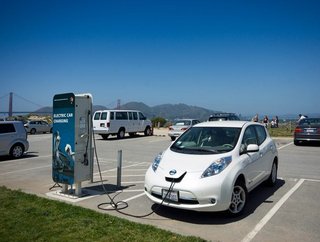Mass EV adoption and other milestones in U.S. markets

As nations around the world strive to reduce carbon emissions, regulators and consumers alike are looking to sectors with the most potential to leverage better-performing technology to achieve this goal. The transportation sector clearly fits the bill.
There has been tremendous market growth and adoption of electric vehicles (EVs) around the world, with U.S. sales of EVs increasing by 21 percent in 2017, according to recent media reports. The widespread expansion of EVs is driven by a combination of factors – not only increased regulatory requirements, but also consumer demand for higher-performing yet sustainable and cleaner transportation fuel options. These trends have led automakers to make significant investments in better, longer-range and more aesthetically pleasing EVs. In fact, there are more than 90 individual EVs that have been announced for the U.S. market by 2023, constituting a global investment of more than $80 billion.
However, to sustain mass-market expansion and continue to meet regulatory and consumer demand, the auto and electric power industries will need to continuously invest in technology and charging infrastructure.
This is particularly acute in the U.S., where a lack of adequate infrastructure may hamper adoption of EVs. Even as demand increases for these new EVs, range anxiety remains one of the top reasons Americans continue to purchase internal combustion vehicles. The incorporation of large-scale fast charging systems, much like those being piloted across the Europe and the U.S., will help further the sustainable adoption of EVs across the U.S.
Due in part to the nature of the U.S. electric power system and its state-by-state regulatory structure, there is not a universal approach to building this infrastructure. While California has extremely ambitious carbon reduction goals and some of the most robust EV adoption rates in the country, its neighbor Nevada has seen much lower EV integration even with its significant solar adoption rates. This has also led to fewer auto dealerships selling EVs in these states, which exacerbates the problem.
Even with these hurdles, the U.S., with its more than 200 million vehicles on roads across the nation, represents a huge market. With continuing advances in technology that will further extend range and provide for self-driving ability, it is clear that the EV market is truly in its infancy. It is also clear that automakers are launching new and exciting products and are partnering with local utilities to provide interesting incentives for customers. Recently BMW extended a $10,000 incentive to purchase its i3 in California and New Jersey, in partnership with utilities in those regions.
We’re confident that the barriers to mass-market expansion will continue to break down over the coming years, leading to higher demand for a broader network of charging infrastructure and greater EV adoption across industries. As transportation becomes more electrified, we will see more innovations and new technologies from cross-industry collaborations. We believe that if the EV sector continues to expand much in the way as it has since 2008, we will see between 70 to 90 percent of EV vehicle fueling being done at home or at work by 2050.
But there must be cross-industry collaborations and spaces in which to explore these issues. This August, EPRI will host Electrification 2018 with the express intent of bringing together thought leaders, innovators, researchers and other stakeholders to focus on the underlying factors and motivations driving consumer demand for EVs and emerging electric technologies.
This growth in the U.S. EV market will set the stage for more efficient uses of electrification and cleaner forms of transportation, benefitting a wide variety of industries and especially the general public. There’s no doubt that the future of EV innovation and expansion is bright, and we have good reason to be excited about the advancements to come.
Dan Bowermaster is the program manager for Electric Transportation with the Electric Power Research Institute (EPRI). An independent, nonprofit organization, EPRI conducts research and development relating to the generation, delivery and use of electricity for the benefit of the public. EPRI will host Electrification 2018, focused on efficient electrification across industries, including transportation, this August in Long Beach, Calif., USA. For more information, please visit www.electrification2018.com.






